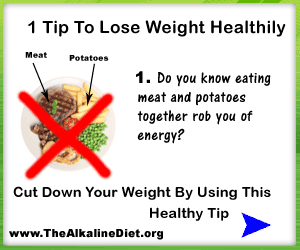7 Minimalist Cooking Tips That Make Healthy Eating Easy
June 10, 2017
Foodviki
Tweet
Follow
Tweet


The minimalist lifestyle is quite popular these days.It encourages you to remove distractions and focus on what’s truly important in your life.In other words, it’s about keeping things simple.
Cooking is one aspect of your lifestyle that you can simplify without compromising quality or taste.
Here are 7 minimalist cooking tips that make healthy eating easier.
1. Focus on Whole, Single-Ingredient Foods
Whole, single-ingredient foods are the key to good health.
Foods such as fruits, vegetables, nuts, legumes, whole grains, fish, poultry and eggs are great examples. These foods are incredibly nutritious and satisfying.
When you focus on whole foods and high-quality ingredients, you will automatically start to eat less processed junk foods.
Processed foods often come with misleading health claims and long lists of ingredients, many of which you can’t even pronounce.
However, truly healthy foods don’t even need an ingredients list. They are the ingredient.
Bottom Line: Eating healthy can be quite simple. Stick to whole foods and avoid processed foods made with refined ingredients and artificial chemicals.
2. Use Simple Flavorings
Red Salt and Pepper Shakers
If you buy high-quality ingredients, you don’t need to add a lot of flavoring. Good olive oil, salt and pepper may be enough.
Fresh herbs can also do wonders for a meal.
Additionally, try to avoid buying new flavorings unless they are something you think you will use often.
If a new recipe requires hard-to-find spices and condiments, you can most likely replace them with something you already have.
A rare ingredient that you will end up using only once is a waste of money and space in your kitchen. Most of the time, you can stick to common ingredients that you already own and know how to use.
Bottom Line: You don’t need to own a lot of rare ingredients in order to add flavor to your food. Simple ingredients like high-quality olive oil, salt and pepper can be used in almost anything you make.
3. Clean Out Your Spice Cabinet
Most people keep a lot of herbs and spices on hand. That’s perfectly fine, as long as you use them regularly and don’t have duplicates.
If your spice cabinet is disorganized and overflowing with spices you never use, you might want to tidy it up a bit.
Try to combine duplicates into one container and donate spices you never use. Throw away spices that are old or bland.
Having a tidy spice drawer will help you cook faster because it will be easier to find the spices you’re looking for.
A good rule of thumb is to go through your spices at least once per year.
Bottom Line: Having a tidy spice cabinet will make you more efficient in the kitchen. Keep spices you use regularly within reach and combine duplicates. Throw out old spices and donate the ones you never use.
4. Keep an Organized, Minimalist Pantry
Young Woman in Apron with Wok Pan
Keep a clutter-free pantry stocked with quality foods you use regularly. Preparing healthy meals will become much easier.
A clutter-free pantry also makes your food less likely to spoil, since you’ll be able to see all your food items neatly organized.
Here are a few tips to help you organize your pantry:
Optimize storage: Store items you often use on the bottom shelves or near the front. Items you use less often can be stored in the back or a little higher.
Sort and group: Designate shelves for similar items, such as keeping your canned foods on one shelf and your breakfast foods on another.
Label everything: Label all of your pantry items and store them in clear, well-sealed containers so that your foods don’t spoil.
Increase accessibility: Try to place items so they are either directly accessible or you can reach them after moving just one item.
If you use these tips, you’ll find it easier to navigate your pantry and locate the items you’re looking for when cooking.
Bottom Line: Taking the time to plan and organize your pantry will make both shopping and cooking easier and more enjoyable.
5. Simplify Your Kitchen Tools
Black Cooking Tools
There are tons of clever gadgets you can purchase for your kitchen.
Yet many are nonessential, single-purpose appliances.
You don’t need fancy kitchenware to cook a great, healthy meal. Simple meals require just a few basics.
If your kitchen is cluttered with items you rarely use, consider selling or donating them. Focus on keeping the functional items you use on a regular basis — it’s a plus if they serve multiple purposes.
However, figuring out what’s essential is entirely up to you. This varies, and something you regularly use may seem unnecessary to someone else. What you use depends on your lifestyle, how you cook and what kinds of foods you like to eat.
Try storing the items you rarely use in a box. If you haven’t opened it in six months, then it’s probably safe to sell or donate those things.
Bottom Line: You don’t need highly specialized, fancy tools for most tasks in the kitchen. Consider selling or donating kitchenware you don’t use often and keeping only the most useful kitchen items.
6. Think Before You Shop
You should think carefully before you purchase a new kitchen gadget.
Start by asking yourself if you really need it. If you’re not sure, think it over for one week before you decide to buy it.
Setting yourself a rule of “one in, one out” may also help. So for any new item you bring into the kitchen, another needs to go.
Think creatively and you might even be able to use something you already own in a different way than you’re used to.
Bottom Line: When it comes to kitchen appliances, less is more. Think carefully before you decide to add another item to your kitchen, especially if it’s an item that’s designed to perform just one specific task.
7. Clear Your Kitchen Counter
Pan
It’s time to de-clutter your kitchen counter.
Store kitchenware you use less frequently in your cabinets and drawers instead of on the countertop.
This is especially important if you live in a small apartment with limited counter space.
You’ll have more room to prepare meals and you’ll probably enjoy cooking more if there is less clutter around you.
This will also allow you to be more organized and focused while cooking.
If you need to keep items on the kitchen counters because of limited cabinet space then make sure they’re frequently used and essential for food preparation.
If you like to store items like keys, mail and wallets on your kitchen counter, make sure everything has a place where it belongs.
Bottom Line: Kitchen counters tend to attract clutter. Keeping them clear will give you more space to prepare meals and enjoy your time in the kitchen.
Simplicity is a Key Ingredient in Healthy Eating
Nutrition is complicated, but eating healthy and cooking great food doesn’t have to be.
The food you make at home is more nutritious and cheaper than prepackaged meals or restaurant foods.
Therefore, it’s essential to make cooking at home as simple and enjoyable as possible.
Share on Facebook
Foodviki
TweetFollowTweet




The minimalist lifestyle is quite popular these days.It encourages you to remove distractions and focus on what’s truly important in your life.In other words, it’s about keeping things simple.
Cooking is one aspect of your lifestyle that you can simplify without compromising quality or taste.
Here are 7 minimalist cooking tips that make healthy eating easier.
1. Focus on Whole, Single-Ingredient Foods
Whole, single-ingredient foods are the key to good health.
Foods such as fruits, vegetables, nuts, legumes, whole grains, fish, poultry and eggs are great examples. These foods are incredibly nutritious and satisfying.
When you focus on whole foods and high-quality ingredients, you will automatically start to eat less processed junk foods.
Processed foods often come with misleading health claims and long lists of ingredients, many of which you can’t even pronounce.
However, truly healthy foods don’t even need an ingredients list. They are the ingredient.
Bottom Line: Eating healthy can be quite simple. Stick to whole foods and avoid processed foods made with refined ingredients and artificial chemicals.
2. Use Simple Flavorings
Red Salt and Pepper Shakers
If you buy high-quality ingredients, you don’t need to add a lot of flavoring. Good olive oil, salt and pepper may be enough.
Fresh herbs can also do wonders for a meal.
Additionally, try to avoid buying new flavorings unless they are something you think you will use often.
If a new recipe requires hard-to-find spices and condiments, you can most likely replace them with something you already have.
A rare ingredient that you will end up using only once is a waste of money and space in your kitchen. Most of the time, you can stick to common ingredients that you already own and know how to use.
Bottom Line: You don’t need to own a lot of rare ingredients in order to add flavor to your food. Simple ingredients like high-quality olive oil, salt and pepper can be used in almost anything you make.
3. Clean Out Your Spice Cabinet
Most people keep a lot of herbs and spices on hand. That’s perfectly fine, as long as you use them regularly and don’t have duplicates.
If your spice cabinet is disorganized and overflowing with spices you never use, you might want to tidy it up a bit.
Try to combine duplicates into one container and donate spices you never use. Throw away spices that are old or bland.
Having a tidy spice drawer will help you cook faster because it will be easier to find the spices you’re looking for.
A good rule of thumb is to go through your spices at least once per year.
Bottom Line: Having a tidy spice cabinet will make you more efficient in the kitchen. Keep spices you use regularly within reach and combine duplicates. Throw out old spices and donate the ones you never use.
4. Keep an Organized, Minimalist Pantry
Young Woman in Apron with Wok Pan
Keep a clutter-free pantry stocked with quality foods you use regularly. Preparing healthy meals will become much easier.
A clutter-free pantry also makes your food less likely to spoil, since you’ll be able to see all your food items neatly organized.
Here are a few tips to help you organize your pantry:
Optimize storage: Store items you often use on the bottom shelves or near the front. Items you use less often can be stored in the back or a little higher.
Sort and group: Designate shelves for similar items, such as keeping your canned foods on one shelf and your breakfast foods on another.
Label everything: Label all of your pantry items and store them in clear, well-sealed containers so that your foods don’t spoil.
Increase accessibility: Try to place items so they are either directly accessible or you can reach them after moving just one item.
If you use these tips, you’ll find it easier to navigate your pantry and locate the items you’re looking for when cooking.
Bottom Line: Taking the time to plan and organize your pantry will make both shopping and cooking easier and more enjoyable.
5. Simplify Your Kitchen Tools
Black Cooking Tools
There are tons of clever gadgets you can purchase for your kitchen.
Yet many are nonessential, single-purpose appliances.
You don’t need fancy kitchenware to cook a great, healthy meal. Simple meals require just a few basics.
If your kitchen is cluttered with items you rarely use, consider selling or donating them. Focus on keeping the functional items you use on a regular basis — it’s a plus if they serve multiple purposes.
However, figuring out what’s essential is entirely up to you. This varies, and something you regularly use may seem unnecessary to someone else. What you use depends on your lifestyle, how you cook and what kinds of foods you like to eat.
Try storing the items you rarely use in a box. If you haven’t opened it in six months, then it’s probably safe to sell or donate those things.
Bottom Line: You don’t need highly specialized, fancy tools for most tasks in the kitchen. Consider selling or donating kitchenware you don’t use often and keeping only the most useful kitchen items.
6. Think Before You Shop
You should think carefully before you purchase a new kitchen gadget.
Start by asking yourself if you really need it. If you’re not sure, think it over for one week before you decide to buy it.
Setting yourself a rule of “one in, one out” may also help. So for any new item you bring into the kitchen, another needs to go.
Think creatively and you might even be able to use something you already own in a different way than you’re used to.
Bottom Line: When it comes to kitchen appliances, less is more. Think carefully before you decide to add another item to your kitchen, especially if it’s an item that’s designed to perform just one specific task.
7. Clear Your Kitchen Counter
Pan
It’s time to de-clutter your kitchen counter.
Store kitchenware you use less frequently in your cabinets and drawers instead of on the countertop.
This is especially important if you live in a small apartment with limited counter space.
You’ll have more room to prepare meals and you’ll probably enjoy cooking more if there is less clutter around you.
This will also allow you to be more organized and focused while cooking.
If you need to keep items on the kitchen counters because of limited cabinet space then make sure they’re frequently used and essential for food preparation.
If you like to store items like keys, mail and wallets on your kitchen counter, make sure everything has a place where it belongs.
Bottom Line: Kitchen counters tend to attract clutter. Keeping them clear will give you more space to prepare meals and enjoy your time in the kitchen.
Simplicity is a Key Ingredient in Healthy Eating
Nutrition is complicated, but eating healthy and cooking great food doesn’t have to be.
The food you make at home is more nutritious and cheaper than prepackaged meals or restaurant foods.
Therefore, it’s essential to make cooking at home as simple and enjoyable as possible.
Share on Facebook






















0 comments